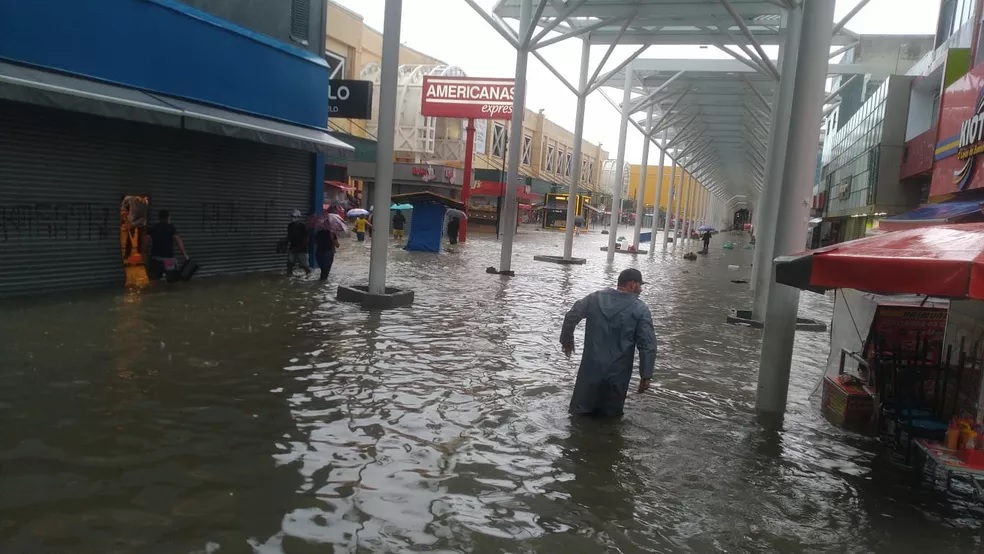RIO DE JANEIRO, BRAZIL – Brazil has gone in a few months from dealing with the worst drought in 91 years to suffering severe rainstorms that have caused nearly a hundred deaths and at least 150,000 evacuees in the northeastern and southeastern regions of the country.
Low reservoirs due to lack of rainfall between June and September 2021 have given way to overflowing rivers, deadly landslides, and entire municipalities flooded between the end of last year and the beginning of 2022.
Bahia, Minas Gerais, and São Paulo, states that are home to some 83 million people, almost 40% of the total population, have been the states most affected by the downpours that have been battering part of the Brazilian territory since October.

The “lack of urban infrastructure” and “climate prevention and adaptation policies” have done the rest, leaving a trail of destruction in their wake, denounced to EFE the geographer Rodrigo Jesus Santos, spokesman for the Greenpeace Climate and Justice campaign.
In São Paulo, Minas Gerais, and Bahia, at least 86 people have died in recent months, while some 150,000 people have had to leave their homes because of the rains, according to official data.
In the town of Franco da Rocha alone, in the metropolitan area of São Paulo, there were 18 deaths due to a landslide that buried some houses built on steep terrain.
“There is an increase in extreme events related to heavy rains with direct consequences on the most vulnerable population living in the periphery of large cities or rural communities,” Santos said.
MORE INTENSE STORMS
Storms are common during the Brazilian austral summer, but this year, they have intensified under La Niña and the South Atlantic Convergence Zone (ZCAS), according to the National Institute of Meteorology (Inmet).
The latter is one of the main atmospheric phenomena responsible for the water replenishment in part of Brazil during the rainy season and consists of a vast band of clouds that persists for several days, causing a lot of rainfall in an area.
It generated, for example, that the city of São Paulo, the most populated city in the country, recorded the rainiest January since 2017.
What is striking is that these above-average rains come shortly after Brazil went through one of the worst droughts in recent decades, a phenomenon increasingly frequent and allegedly linked, among other factors, to deforestation in the Amazon.
During the past austral summer, already dry, the southeastern and central-western regions of Brazil, responsible for the generation of about 70% of the country’s electricity, saw their reservoirs fall to the lowest since 2001.
MAJOR SOCIAL AND ECONOMIC IMPACT
The drought severely affected agricultural areas, with gigantic economic consequences, and forced the Government to create a new consumption tariff that increased the electricity bill to encourage savings and avoid energy rationing.
The heavy rains have also been causing immense economic damage that the National Confederation of Municipalities (CNM) estimates at about R$55.6 billion (US$10.5 billion) from 2017 to today.
Likewise, the entity estimates that, in the last five years, downpours destroyed almost 16,000 homes and damaged more than half a million.
Extreme events “will become increasingly intense, according to the scenarios designed by the Intergovernmental Panel on Climate Change (IPCC),” and their impacts are being “enhanced” by human action, Santos recalled.
However, according to Greenpeace, only 7 of the 27 Brazilian states say they have a climate prevention and adaptation plan, which will publicly ask the federal and regional administrations for urgent and effective actions in this direction next week.
With information from EFE

